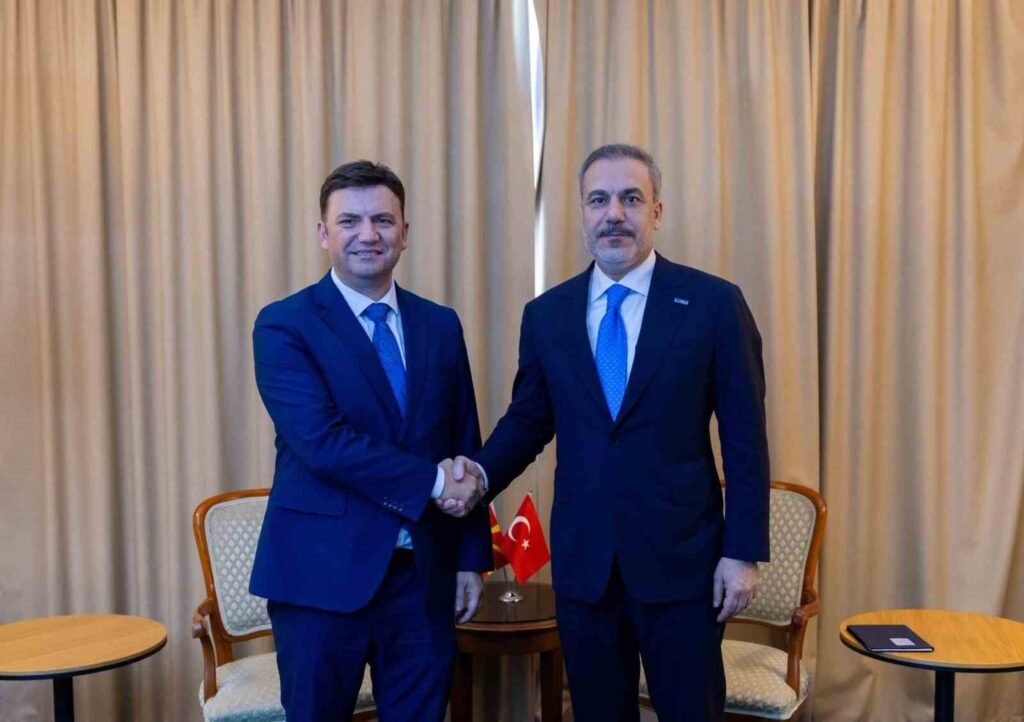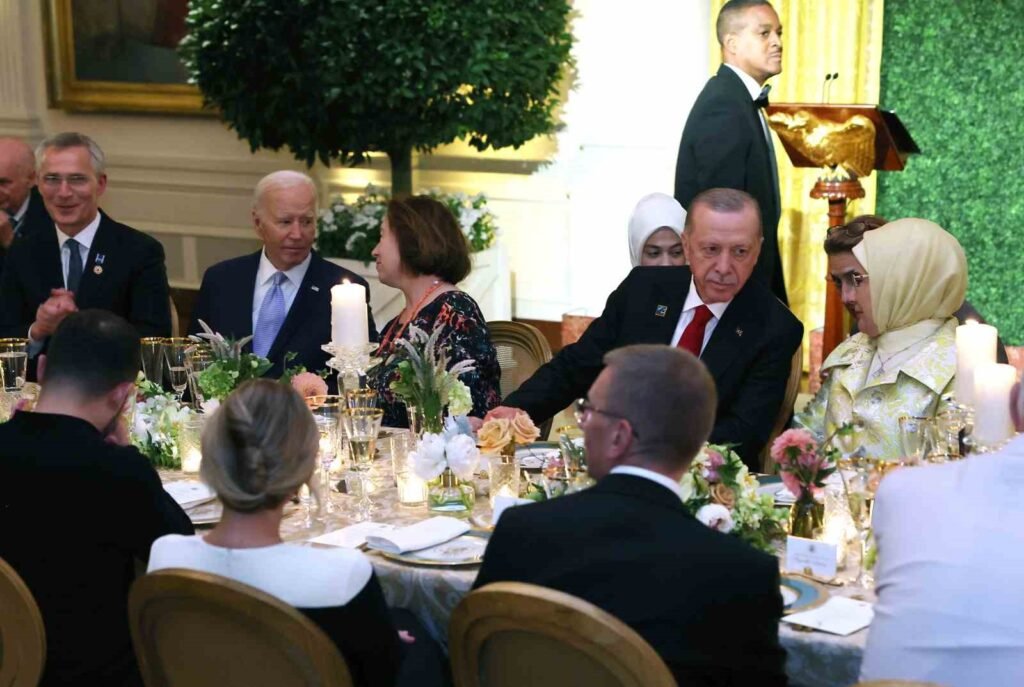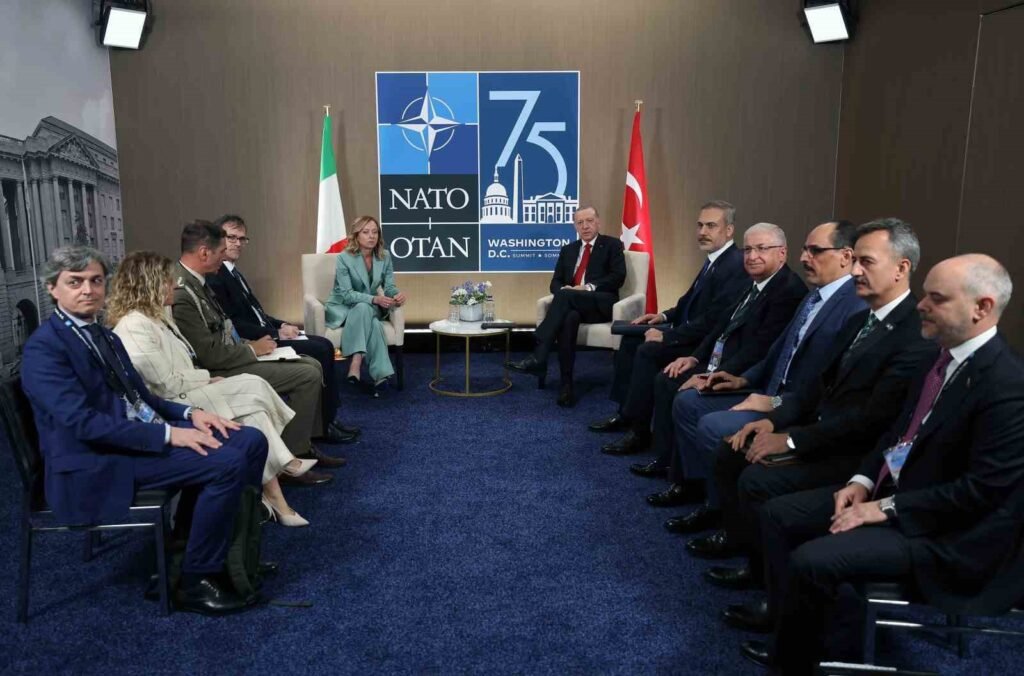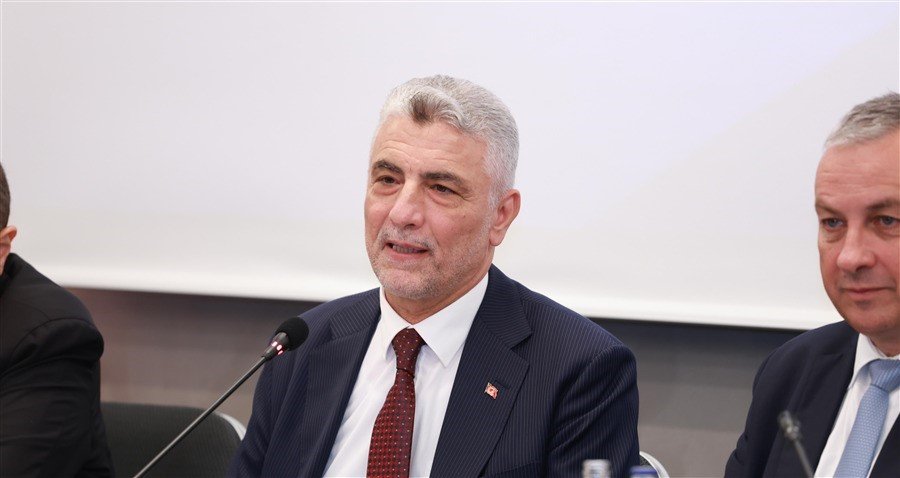Medvedev to Georgian President Zurabishvili: “She should be arrested”
Russia’s Security Council Deputy Chairman Dmitry Medvedev targeted Georgian President Salome Zurabishvili, who stated that she does not recognize the results of the elections held in Georgia over the weekend, saying, “Georgia’s puppet president should accept the election…”

Russia’s Security Council Deputy Chairman Dmitry Medvedev targeted Georgian President Salome Zurabishvili, who stated that she did not recognize the election results held in Georgia over the weekend, saying, “The puppet president of Georgia refused to accept the election and acted contrary to the Constitution by calling for a coup. The standard practice in such cases is dismissal and arrest.”
The echoes of the announcement of victory by the ruling pro-Russian Georgian Dream Party in the general elections held on October 26 in Georgia continue. In response to Georgian President Salome Zurabishvili’s statement of “I do not recognize the election results,” Dmitry Medvedev, the Deputy Chairman of the Russian Security Council, reacted. In a post on his social media account, Medvedev stated, “The puppet president of Georgia refused to accept the election and acted contrary to the Constitution by calling for a coup. The standard practice in such cases is dismissal and arrest.”
“Violation of election integrity is not in line with the standards expected from an EU candidate country”
Thirteen EU member countries made a joint statement regarding the elections in Georgia. The statement said, “The violation of election integrity is not in line with the standards expected from an EU candidate country and represents a violation of the legitimate European inclination of the Georgian people. The protection of the rule of law and the conduct of free and fair elections are integral parts of any progress Georgia makes on its path to the EU.”
“Moscow is ready to discuss proposals to expand contacts with Georgia”
Russian Foreign Minister Sergey Lavrov conveyed that Russia, which has had no diplomatic relations with Georgia since 2008, is ready to evaluate potential proposals coming from Georgia. Minister Lavrov stated, “The Russian side is ready to evaluate potential proposals for developing relations with representatives of the Georgian government. We have never avoided contacts. Currently, we have no diplomatic relations because the previous government of Georgia suspended them, but we have representations at the Swiss Embassy to protect our interests and those of the Georgian side in each other’s territories.”
Opposition and President Zurabishvili do not recognize the election results
According to the results of the Central Election Commission in the elections held in Georgia on October 26, the ruling Georgian Dream Party received 53.93% of the votes, marking its fourth consecutive victory in elections. Other parties that surpassed the 5% threshold and gained representation in parliament are the Coalition for Change in second place with 11.03% of the votes, the United National Movement, the party of former President Mikheil Saakashvili, in third place with 10.1%, Strong Georgia in fourth place with 8.81%, and Georgia for Gakharia in fifth place with 7.7%. The opposition is expected to hold 61 seats in the 150-seat parliament, while the ruling Georgian Dream is expected to have 89 seats.
However, the statement from the opposition and President Salome Zurabishvili that they do not recognize the election results has ignited tensions in the country. Thousands of people took to the streets in the capital Tbilisi last night, gathering in front of the parliament building to demand a new election.
The election took place under the shadow of strained relations between Tbilisi and the West
As the NATO and European Union integration process remains a priority for Georgia, relations between the Tbilisi administration and some Western countries have recently deteriorated. The “Transparency of Foreign Influence” law, which led to prolonged protests in April and May and was labeled as the “Russian Law” by the opposition, has resulted in the suspension of Georgia’s EU membership process. The EU suspended a planned aid of 30 million Euros for the Georgian army for 2024, while the US announced some sanctions. The US also announced that it has suspended a planned $95 million aid to Georgia and joint military exercises scheduled for this year and imposed visa bans on some Georgian officials.
Georgian opposition described the election as a “choice between Europe and Russia,” while the government characterized it as a “matter of peace or war.”
The “Transparency of Foreign Influence” law requires civil society and media organizations in Georgia that receive more than 20% of their annual funding from abroad to register as “foreign agents” each January, or they face fines.
Georgian President Zurabishvili’s “Georgia Charter” proposal
Seeing the “Transparency of Foreign Influence” law as a “threat” in negotiations with the EU, Georgian President Salome Zurabishvili called on opposition parties to unite in June to facilitate the integration process with Europe. Zurabishvili had reached an agreement with four major groups on the “Georgia Charter.” Thus, if the opposition wins the election, a temporary government will be established, the laws deemed a threat on Georgia’s path to the EU will be withdrawn, and early elections will be held.







